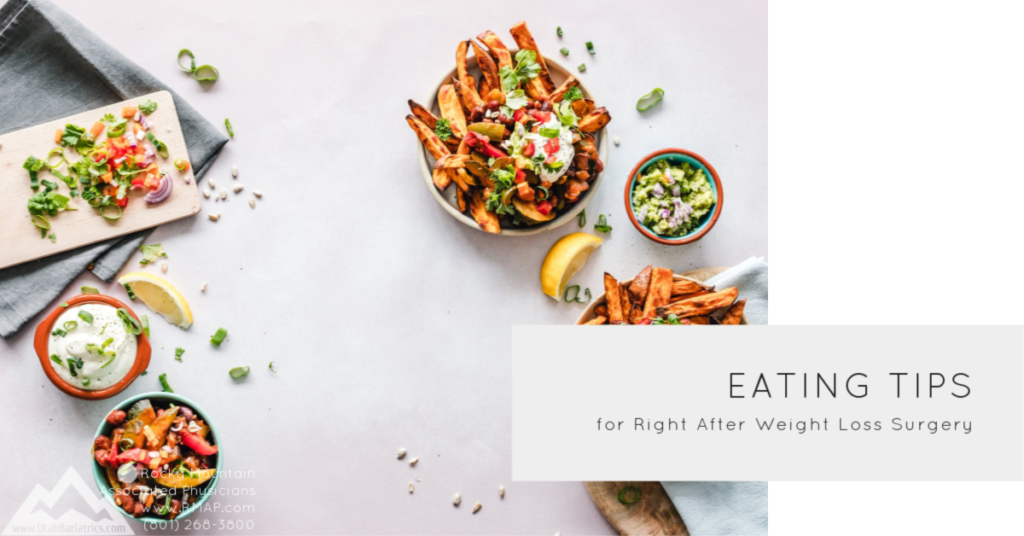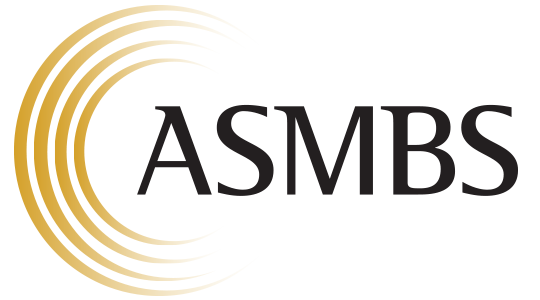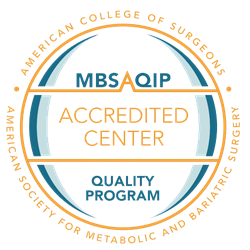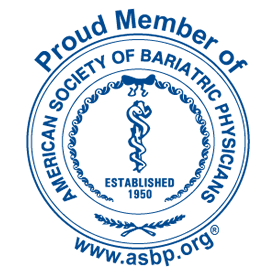
Learn more about weight loss surgery at Rocky Mountain Associated Physicians www.RMAP.com (801) 268-3800
Change comes through awareness of the choices you make. The awareness lifestyle compels you to identify practices that will move you towards the health and fitness outcomes you desire.
During the first few weeks following weight loss surgery you are recovering and it is very normal to feel tired, have insomnia, incision discomfort and even occasional nausea. The latter is especially common if you try to hurry your eating plan.
You must make lifestyle changes in order to make your weight loss permanent. The weight loss surgery, through increased physical awareness, assists you in making many of these changes, especially in the beginning. When eating, be sure to stop when you are finished with your required portions, or until you reach the sensation of fullness. Eating past your first sensation of fullness can cause discomfort. Your body simply doesn’t tolerate many foods that you have eaten in the past. Often you will have no appetite at all. You may even have to remind yourself to eat for several weeks. Appetite usually returns around 4-6 months after the surgery.
If you follow the nutrition guidelines we list below, it will assure that the weight will come off and stay off for life.
The fastest weight loss comes during the first 6-9 months. Simple carbohydrates and starches are prohibited during the weight loss stage and should be extremely limited the remainder of your life. Examples of these foods are:
- Breads
- Pasta
- Potatoes
- Rice
- Chips
- Tortillas
- Candy of any kind
Complex carbohydrates found in vegetables and legumes are recommended.
Food Plans
For the first few days after surgery you will receive liquids intravenously then gradually advance to a clear liquid diet of water, broth, and Jell-O. After your stomach can tolerate these, you ill begin full liquids followed by a soft food diet.
Several hours to day 1 after surgery
- Sip 1-2 ounces of water per hour beginning this evening, or as directed by your surgeon
Post-Op days 2-3
- Clear liquids only
- Water
- Low or zero calorie beverages
- Sugar-free Jell-O
- Sip 3-4 ounces of water per hour, between meals
- Use broth and sugar-free Jell-O as meals rather than snacking throughout the day
- Multivitamin and sublingual B-12
Post-Op days 4-6 (Gastric Bypass)
Post-Op days 4-14 (Sleeve & Duodenal Switch)
- Full liquid diet
- Skim milk
- Light yogurt
- Cottage cheese
- String cheese
- Strained soups such as tomato, split pea, or cream soups prepared with water or skim milk
- Limit amounts to 2 oz. per meal (gastric bypass) or 2-4 oz. per meal (sleeve & duodenal switch); this is measured in volume not weight
- 2 oz. volume = 4 tbsp.; 4 oz. volume = 8 tbsp.
- 4-6 oz. of water intake between meals
- Multivitamin and sublingual B-12
Post-Op days 7-4 weeks – Soft Food Diet (Gastric Bypass)
Post-Op days 15-4 weeks – Soft Food Diet (Sleeve & Duodenal Switch)
- One at a time, add other foods, such as cooked canned vegetables, deli meats, canned chicken or turkey (meat will be hard to digest initially)
- Stews with vegetables, beans or lentils cooked without fat or lard
- Take twenty full minutes to eat your meals
- Limit amounts to 2 oz. per meal (gastric bypass) or 2-4 oz. per meal (sleeve & duodenal switch)
- You may be full before you finish eating—stop eating at first sensation of fullness
- Your liquid intake should be 4-6 oz., or more, per hour between meals
- Multivitamin, sublingual B-12, calcium citrate, (ADEK vitamin for DS patients)
During the first few months limit your meal portions to 2 oz., 4 tbsp. Eat three small meals each day consisting of 70% protein and 30% vegetable (three bites of protein and one bite of vegetable). Because you need to chew your food until it is smooth in your mouth, it could take around 20-30 minutes to eat each meal.
- Measure your food
Measuring your foods will assist you in eating the correct amounts for your new pouch. Eating too much during this time may cause discomfort, nausea, and/or vomiting.
- Follow the dietary guidelines
Don’t add new foods prematurely. Adding solid meats, etc., prematurely may cause sensations of discomfort, vomiting, nausea, and can cause an obstruction in the healing pouch or sleeve.
- Take 20-30 minutes to eat each meal
- Do not skip meals or eat on the run
You may eat too quickly and forget to chew your food well. Your body needs food on a regular basis to maintain an appropriate blood sugar level.
- Use small spoons and forks
These utensils will help you to remember that you must eat smaller bites. They will also control the speed of your eating. Use small plates such as saucers or children’s plates. Learn to savor the flavor and texture of each bite of food.
- Eat only until you are comfortably satisfied
Stop eating at the very first sensation of fullness. Eating past this point may cause discomfort, nausea, and even vomiting. Never eat past your portion size. Portion awareness and practice is of utmost importance.
What to Eat Day 7-4 Weeks (Gastric Bypass)
Day 15-4 Weeks (Sleeve & Duodenal Switch)
Proteins
- Deli meats
- Canned turkey, chicken, and tuna
- Cottage cheese
- Yogurt
- Eggs
- Tofu
- Cheese; grated, melted, cubed
- String cheese
- Canned beans
Vegetables
Do not eat raw vegetables. Eat canned vegetables; they are easily digested. However, you may try steaming fresh vegetables until they are very soft or use frozen varieties warmed on the stove or in the microwave. Be sure to chew your vegetables well.
- Tomatoes
- Green beans
- Yams
- Beets
- Carrots
- Peas
- Squash (all varieties)
- Broccoli
- Beans (all varieties)
Soups
Remove all liquid from soup before eating. Eat around any potatoes, pasta or corn that may be included.
- Bean
- Lentil
- Chicken vegetable
- Turkey vegetable
- Beef
- Minestrone
- Bean with bacon
- Tomato soup
- Pea soup
Condiments
Condiments can spice up what seems to be bland food, add variety and make food more attractive.
- Mustard
- Ketchup
- Light mayonnaise
- Low fat yogurt
- Low fat sour cream
- Salsa
- Lime juice
- Lemon juice
- Light salad dressing/vinaigrette
- Vinegar
- Light cream cheese
- Salt
- Pepper
- Spices
Beverages
Water is always the beverage of choice. Drink it first. Avoid drinking your calories.
- Water
- Bottled water
- Filtered water
- Ice chips
- Shaved ice
- Herbal teas
Other Liquids (limit)
- Beef broth
- Chicken broth
- Vegetable broth
- Skim milk
- Buttermilk
- Tomato juice
You should sip at least 4-6 ounces of liquids an hour. Your intake should be a minimum of 64 ounces each day. If you have a difficult time with water, add a lemon or lime wedge to give it a little flavor. If you feel full, or experience pain or nausea, stop sipping until the feeling passes. Stop drinking 30 minutes prior to each meal, then eat your meal, and then don’t drink again for the next 30 minutes.
Please remember that drinking your calories can cause you to regain your weight. It is strongly recommended by our surgeons that you never drink your calories. The following drinks should always be avoided:
- Soda pop
- Slurpees
- Juice
- Alcohol
- Milk shakes
- Coffees of any type
- Caffeinated beverages
Use alcohol with caution as it is absorbed into your body more quickly and can give you a higher blood alcohol level than you would otherwise have. Also, drinking alcohol is a source of liquid calories and may cause you to regain weight. Talk with your surgeon about safe ways to consume alcohol after surgery.
Meal Suggestions for this Stage of Nutrition
Remember to limit amounts to 2 oz. per meal (gastric bypass) or 2-4 oz. per meal (sleeve & duodenal switch).
Breakfast
- Deli meat with melted cheese on top
- Scrambled egg, grated cheese, cooked mild tomato salsa
- Low-fat low-sugar yogurt with all-bran flakes, or shredded wheat. Limit cereal to once a week during the weight loss stage.
- Poached eggs, canned tomatoes
Lunch and Dinner
- Cottage cheese, cooked green beans and carrots
- Ricotta cheese with cooked mild tomato salsa, cooked zucchini
- Tuna fish mixed with low-fat cottage cheese, cooked peas
- Low-fat refried beans, cheese, cooked mild tomato salsa
- Deli meat stewed with cooked vegetables with cheese
- Deli meat stewed with seasoned stewed tomatoes with fresh grated parmesan cheese
To promote weight loss, encourage healing after surgery, and maintain a healthy body, it is important to make changes in your eating habits. Proper eating habits will facilitate digestion and weight loss. Healthy eating gives your body the nutrients it needs to repair and heal the body. It also provides energy and helps you to feel your best.
As you begin to feel better you may need to remind yourself to eat three meals a day. As you get back into the swing of ordinary life you may forget your need to eat regularly. Do not go longer than five hours between meals. Eat slowly and chew your food well. Stop when you have eaten your measured portions.
Failure to plan is a plan for failure. During this time, you will absolutely need to know ahead of time what you will be eating. When you don’t know, the temptation and lack of planning makes it much more likely that you will eat food that may not be good for you. It may also be something that your body cannot tolerate.
Vegetables
Begin to add raw vegetables eight weeks following your surgery. Make a little salad using a variety of veggies. Refrain from using lettuce as the primary vegetable in your salad. Lettuce is difficult to digest and may cause a temporary obstruction. You may use dressing on your salad, but do try to stay with the low-fat varieties.
Dietary Fats for DS Patients
Dietary fats may pose a problem after Duodenal Switch surgery. The reason isn’t so much the risk of weight gain, although that can occur, but fat in the diet can contribute substantially to foul smelling gas and diarrhea. If you are having problems with gas or diarrhea cut way back on the fat in your diet. Remember that most patients after DS surgery will have an average of 3-4 bowel movements per day (this is normal after surgery). If you are having more or your gas is particular foul, thin about the fat in your diet. Sometimes we will need to administer oral digestive enzymes to help but this can be expensive and can result in decreased weight loss. Think diet first. Also, excessive carbohydrates and dairy products can cause diarrhea and gas. Usually diarrhea can be controlled by paying attention to your diet.
Hydration
You should be drinking a minimum of 64 oz. of water each day. Proper hydration is essential for weight loss and appropriate energy levels. Water is the beverage of choice.
One suggestion is to drink 16 oz. bottle of water on your way to work if you have a thirty-minute drive. Drink 16 oz. bottle of water on your way home. This is half of your daily water-drinking requirement. You can add in the other 32 oz. between your three meals.
Measure and Monitor Portion Size
Americans in general experience difficulties with portion distortion. “Less is best” for long-term weight control. Monitoring portion sizes by measuring food quantities is essential for continued success.
You will never have the opportunity to relive these first rapid weight loss months again. Dedicate yourself to staying within the guidelines we set out for you from the start and develop the habits that support long-term success now.
For helpful hints on how to curb hunger between meals click here.
For helpful hints on meal planning made simple click here.
For helpful hints on meal planning and dining out click here.
For helpful hints on how to be portion-wise click here.
For helpful tips on carbonated beverages, caffeine and alcohol click here.
For helpful hints on back to nutrition basics: some guidelines for life click here.
For helpful hints on a lifetime of eating healthy click here.
Find more answers to Frequently Answered Questions here.
www.RMAP.com
Rocky Mountain Associated Physicians
801-268-3800
1160 East 3900 South, Suite 4100
SLC, UT 84124













 Address: 1521 East 3900 South STE 100
Address: 1521 East 3900 South STE 100 Office: +
Office: +  Fax number (801) 268-3997
Fax number (801) 268-3997 Email: info@rmapinc.com
Email: info@rmapinc.com



